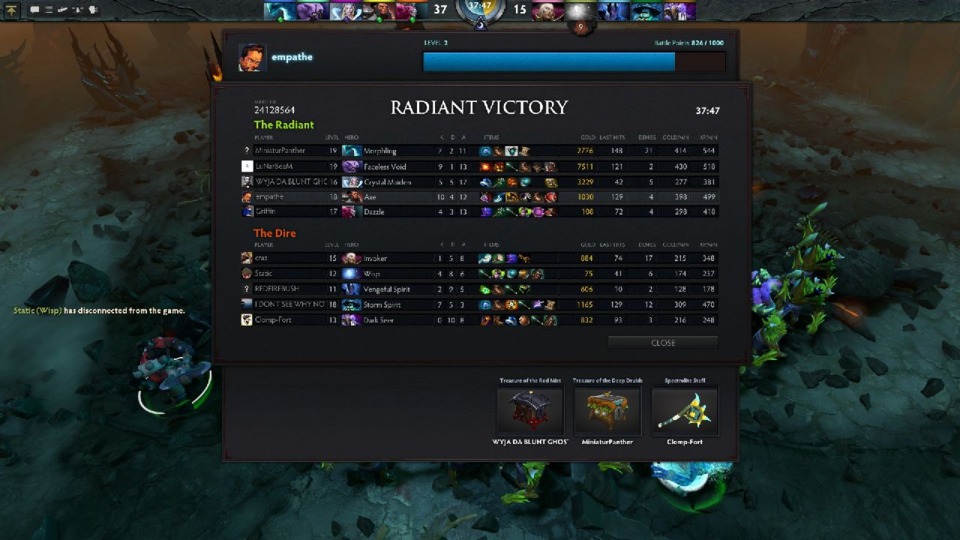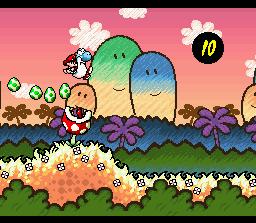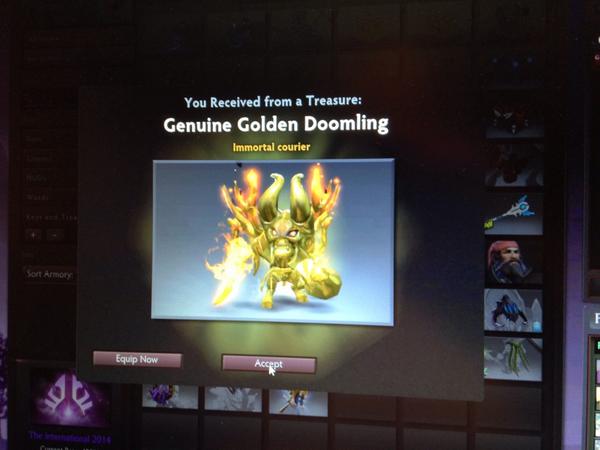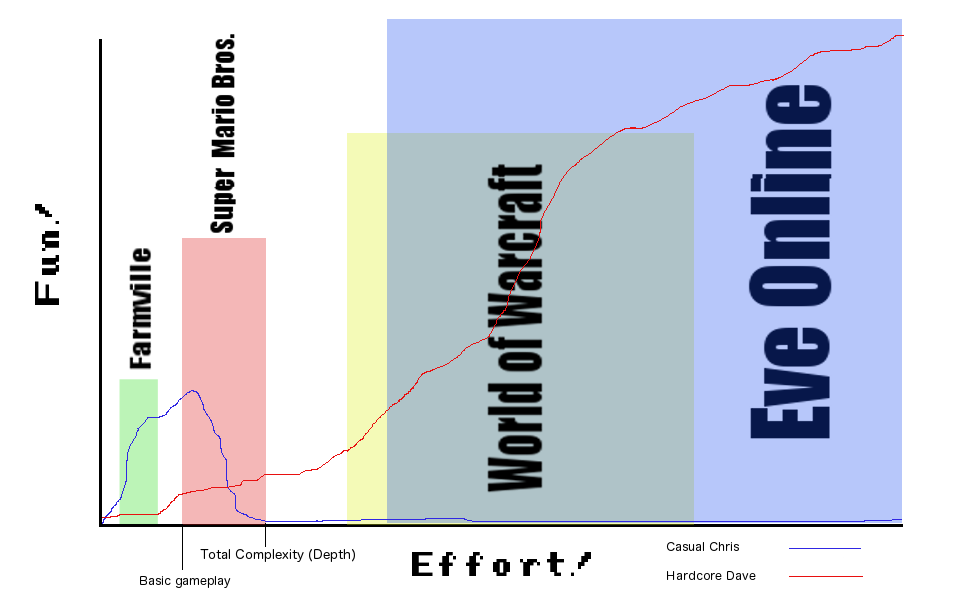I make ‘gross’ free to play games
By koolaid 94 Comments
Free to play mobile games have been in the news again lately. It seems like everyone and their Mom is talking about Kim Kardashian: Hollywood. Even game journalists are writing about the game. Meanwhile, there’s news that F2P games will no longer be able to advertise themselves as free on the Google Play Store. The topic of F2P insights a lot of passion in gamers. It seems everyone has an opinion on the matter.

I have an opinion on free to play too, but I’m coming at it from a different perspective. For the last 4 or so years, I’ve been working in the F2P mobile space. For most of that time, I’ve made games designed specifically for girls, specifically ones who do not play a lot of games. Some of them have bars that you fill up by tapping a button. Basically, I’ve made games in the same vain as Kim Kardashian: Hollywood. You could say she is the League of Legends to our Dota (or maybe it would be more accurate to say she is the LOL to our HON...) A good chunk of my life has revolved around F2P for the last few years.
So boy, do I have some opinions!
I’ve tried to express them in comments, but the format is a little too limiting. And there is just so much to say! I’ve never tried to write a long blog post before. But I have all these opinions swirling around in me, so I think it’s going to be good to get them out. So these are my thoughts on the whole matter. I ain’t trying to say they’re better than anyone else’s. Or that they are even definitive, it’s still just my opinion. But it’s been my job to think this about this shit, so I’ve spent a lot of time formulating them. You could say this is a brief primer, exposing some of the thinking, exploring the controversy, and showing why we make some of the choices we do. And hopefully it can answer some questions you might have next time you think “Who are these scumbags who are trying to con us out of our money and what were they thinking?!?” I don't know if this blog has an ultimate point. Really it's just a collection of my thoughts. But here it goes.
NOTE: I try to be as thorough with my explanations as I can. So if I say something that seems painfully obvious I’m not trying to talk down to you. In my experience, it’s better to fully state the obvious instead of assuming everyone shares your experiences, perspectives and information.
What is Free to Play?
Let’s start by defining what a free to play game is. The essential definition of F2P is a game that is free to began playing. The purpose of this is to lower the bar to entry as low as humanly possible. Traditional (which we could call premium) games are all about paying BEFORE you get the game. The implied promise with traditional games is that you are going to have this great time once you get the game, but you have to pay the gatekeeper first. And there’s a chance you might not even like a game once you start playing it. These are pretty basic concepts I’m sure.
So the problem with traditional games is that marketing becomes super important. Making a good game that reviews well is pretty important too, but the people who read game reviews are only a fraction of the people who buy them. So bottom line, when you are making a traditional game, you have to convince a potential player to spend their hard earned cash on your game based solely on faith. Not an easy task. Especially if that person isn’t even into games that much (one of them filthy casuals).
But free to play is different. It’s free to play! There is no barrier to entry, so you can start playing right away and see if you like it! It’s low risk! The only thing you’re risking is your time.

After that basic definition of F2P, you start to have a lot of variance from game to game. Is only a small portion of the game free and do you pay for the rest? Is the entire game free and you pay for some cosmetics? Can you play for a set amount of time for free and have to chose to wait or pay? All this is possible and more! But for the purposes of this blog, I’d say the most common thing that comes to mind is the microtransaction. Selling small items in the game for cold, hard, cash.
If I had to nail down a core complaint about F2P, I’d say it’s this: while it costs nothing to start playing a F2P game, there is no limit to when you stop paying. Some players, especially ones who are used to the traditional model, just want to pay for the game, get everything and be done with it. They don’t want to be nickel and dimed to death. I agree is it pretty frustrating when this is the case. But on the other hand, F2P gives you the freedom to pay what you want, and I feel that’s rarely praised, more on that later.
So from this point on I think I’m just going to cover my thoughts on some of the core concepts and controversies about F2P. If you think I’m being selective, feel free to call me out and I’ll try to address it.
On Selling Digital Goods
Let’s get this idea out of the way first: I don’t find it immoral to sell someone something.
If you are upfront about what you are selling, then the power is completely in the hands of the player. The idea that F2P games are sinister because they have the capacity to endlessly charge their users is strange to me. Microtransactions are completely optional. You can chose to engage with them. Or you can not. Some transactions are good deals. Some are bad. But it is still a choice. And giving people that choice does not feel scummy to me. I don’t force anyone to do anything. We would like players to enjoy our games. And we would like them to spend money on the game. I’m not going to lie. F2P games can be a little forceful to try and squeeze some extra sales out. But it’s still optional. And when most of the game is completely free, is clicking through an extra up sell menu really that big a deal?
Speaking of optional, do you know that only a small fraction of players actually spend money in most F2P games? There are a lot of numbers that are thrown about. Some say up to 98% of players don’t spend a cent. But I’ll be conservative and just say 95% don’t spend. It depends on the game of course, some games have a lot of players paying a little bit and some have fewer players paying more. But still, all the data shows that the vast majority of players do not pay. They play these games 100% percent for free.
Now you may look at that number and say “They don’t pay because 95% of people realize your game is a scam!” And to that I would agree that many players do not pay because they don’t see value in the microtransactions. But a large majority of players will not pay for something that they feel they can get for free. In other words, they will not spend money in your game, no matter what.
And I’ve tried. I have personally led initiatives on some of my projects with the intent of offering players great value. The goal was to get every player to spend just once, even if it was 99 cents. The hope was if I could drastically increase the amount of people spending, then we could lower prices to be more reasonable, and everyone wins. But unfortunately, it just didn’t work out. Sure, some more people spent money. But the majority still did not. They had fun playing it, but they found no valuing in paying. I’ve found it more difficult to convince a player to go from paying nothing to paying 99 cents then to convince a player to go from $5 to $15. There are people who just won’t spend money in your free game.

And on the flip side, there are also people who will spend TONS of money on your game. This is why you see the $99 ‘best value’ bullcrap. Because there are people who buy that. And if you make it so everyone gets a good value from paying a little, you remove the revenue from those big spenders. Essentially I found that I could double the amount of people paying, but make half the money. This is bad. Because we are running a business and we are trying to make money. What a great segue into my next topic!
Making money first, and games second
I also hear this criticism a lot. The accusation that these social game companies are closer to tech companies than game companies. That these companies only care about making money and not about making games. Sometimes it’s worded that they don’t care about making “good‘ games. It’s a little hard to answer this one without a little bit of conjecture on my part. But to this I’d say: yes, these companies care about making money first.
And show me a company that isn’t.
Companies exist to make money. Period. They are businesses. And our business is making and selling games. Now, if you love games, this can be a difficult pill to swallow. I know it was for me. But it’s money first. And that is not necessarily bad or evil. It seems to me there are two core reasons why companies need to make money:
1: Because companies need money to exist. They have to make money, or people get laid off, or maybe even the whole place shuts down. Running a game studio requires a lot of cash and employing people is a pretty hard thing to do. I’ve found that a majority of companies are living on the edge (the edge being layoffs), almost all the time. I feel there is a perception that a lot of game studios are fixed establishments merely because they exist or because they have shipped a few good games. I don’t think this is true.
Based on a lot of comments I see about kickstarters or general game funding, I think that a lot of people underestimate how much it costs to make a game. But furthermore they also overestimate how much spare money these companies have stockpiled. For example, many people questioned why Harmonix didn’t pay for the development of Amplitude with all the fat stacks they got from Rock Band or Dance Central. The answer is that money does not exist! It was all spent already on things like office space, salaries, health insurance, taxes, and equipment. When games flop, people lose their jobs. Hell, people lose their jobs even when games go great! So selling a lot of product is a lot less about being a greedy asshole than you might think. More often than not, it’s about just trying to survive!
2: Companies also need money to provide value to investors. Yes, this is more about greed. But it is also about honesty. Investors are the source of your funding. Without them, there would be no game company in the first place. And they are giving you money with the expectation of a return on investment. If you took that money, is it not your moral obligation to try and provide value? Personally, I don’t ever want to get in bed with investors for this reason. But I also don’t employ anyone. So I can’t really take the high road here.
This is why game makers love the idea of Kickstarter so much. They don’t want to work with investors or publishers! They want to work for the people who love games as much as they do! Wouldn’t it be better to working with someone who just wanted an awesome game to exist than someone who just wanted to make more money? But I digress.
The point of all this is not to say that making a good game isn’t important. You can care about both! And we do care about both! It doesn’t have to be one or the other! Most people I know are trying their best!
Now, this next part requires a little bit of conjecture on my part because my own experience is a little limited. But I believe that every game company is like this and always has been. If you really do care about making great games, and I believe a lot of companies do, you can’t afford to ignore the money angle if you are responsible for employees or shareholders. You have to figure out how to make money accurately and consistently.
What I’m trying to say is: the games I played during my childhood where magical. The RPGs and platformers and adventure games... They stretched the limits of my imagination. They inspired me. They define me.
But I don’t seriously believe that they were sitting about at Nintendo in the early 90’s and saying ”Well, this artistic passion project is done. I really hope it ends up being profitable so we can still have a job!” I think they were selling products. They were good products! But they wouldn’t have made them if it wasn’t going to make money. They got the money to do this in the first place because some investors wanted to get rich off it. And they did!

Hell, there was this video that was just released that tears down Sonic the Hedgehog. They the theory they present is that Sonic was basically just conceived as a marketing gimmick to show how fast the Genesis can be. Think about that. This beloved character is a marketing gimmick! But does that change anything? We still love him! (Sorta)
Again, I have to stress that this is conjecture on my part. I haven’t worked at every game studio. Hell, I haven’t worked at many game studios. But I cannot imagine a traditional, non-indie game company that does not put sales first. It just does not compute. They care a lot about making great games too. But without money, they have nothing.
So in summary, I think all game studios, with the exception of some indies, care a lot about making money. So I want to jump back to how F2P games make that money. Specifically, I want to talk about some of those crazy prices. I want to talk about value.
On value
This is a tough topic to talk about without sounding like a pretentious dick. But it’s something you gotta deal with if you sell games, so I gotta talk about it. And that something is value. A lot of folks scoff at F2P prices. I mean, why would you buy some bullshit fake hat for $20 when you could get an entire game for that much? What idiot buys the $99 in app purchase? Those “whales” must be crazy! And who are these assholes who are trying to sell $50 golden pets to a bunch of suckers?
The answer to that question is that everyone has a different set of value judgements when it comes to price. And that is usually based on how much disposable income they have. When you are making games commercially, one of the key lessons is to understand is that you are not making games for yourself. You are making them for other people. And you are pricing your game for a whole wide range of people too.
At the expense of sounding like an asshole, I’m gonna be frank here: $60 does not hold the same value to everybody. There are folks that don’t think twice about spending $60 on a new game. And there are folks who got to save to make that day one purchase. And you’ve got to respect that, in both cases.
When I was in high school, I couldn’t afford a ton of brand new games. I had to rely on Christmas or on making money from trade ins to get games relatively new. But today, I got a well paying job, I’ve paid off my student loans, I ain’t got no kids, and I have a lot of disposable income. I’m not trying to brag. I just want to illustrate that my spending patterns changed accordingly over time. And now I spend money on things that would be unthinkable even 5 years ago. Like a fancy bottle of wine or bourbon. Or buying an Xbox One AND a PS4. It’s a part of growing up that hopefully everyone can experience, but I understand that not everyone gets to. I’ve worked very hard but I’m also incredibly lucky.
What I’m trying to do is justify why someone would spend $50 on a fake hat. And in turn justify why I would sell them one. It’s because they just don’t care. They don’t view $50 as an expensive purchase anymore. Heck, there are players that are REALLY rich that just spend and spend and it doesn’t matter to them. I know that if you are really into a game, the idea that you can’t experience all of it unless you shell out $100 (or more) sucks a big one. But it’s really not about trying to deny you an experience, it’s trying to enable users to spend what they want.

And that’s a strength of F2P that doesn’t get recognition. You really can pay what you want. You can pour tons of money into it. You can pour a little. And if you don’t have a ton of money to spend, you don’t have to spend a damn thing.
The people who spend money in these games do so because they find value in it. Sure, not everyone does. I wouldn’t spend $500 dollars on designer shoes or a purse. But some folks do and I get it. And most people don’t spend money these games all at once, but spend a little each day. It adds up. And what doesn’t? A lot of folks get a coffee at starbucks everyday in the morning. That could be anywhere from $2 to $5. How much money is that over a week? A month? A year? A lot of cash just spent on coffee. So when someone says they spent $300 on a phone game. That could be as little as a dollar a day, every day for a year. That’s not that much, is it?
And you want to know some more good news? The value is only going to get better for players as time goes on. When F2P started there really was very little competition. That ain’t true at all anymore. Back then, you really could just make a bad deal, funnel millions of people through it, and if 1% paid, you made bank. But it’s harder and harder to get users into your game and its harder and harder to get them to pay because of the increased competition. That means you have to offer players better values, and better games in order to make your game profitable. Companies can move slow because they try to be as safe as possible and they try to milk ideas as long as they can get away with it. They usually aren’t always trying to offer innovative experiences unless they have. But I promise you they are coming.
Let’s move on.
On kids
This topic is pretty rough. Yes, some of these games are marketed towards kids. Some young kids play them. And they don’t really get the concept of money. And sometimes they go crazy on Mommy and Daddy’s credit card.
This sucks. You feel bad. You feel scummy. But you don’t want it to be like this. In a perfect world, the kids would ask their parents permission for this stuff. In a perfect world, their parents would know better than to give their kids a device that is hooked up to their credit card. But they don’t.
But you know, it’s really is just the growing pains of going digital. Digital stores are the future. And that kid could have just as easily spent a hundred bucks on Hannah Montana CDs on iTunes. (Is that reference out of date?) But we don’t want to burn iTunes to the ground.
And whenever stories come up about gets going on a spending spree, the part they don’t mention is that Apple totally refunds all these folks. Everyday there are people who contact us and say this happened and they get refunded. And before you go and say “if this really is something that happens everyday, maybe you should put some serious thought into whether or not you are a scumbag” I got to tell you, when you got MILLIONS of users, you can have an issue that affects 0.01% percent of players that’s still 100’s of folks. You run into all sorts of strange edge cases when you have that many users. And it just takes one to make a bad news story.
Now I want to get into the real meat of my defense of mobile F2P. This idea that casual games have lame, oppressive mechanics that advantage of players who just don’t know what a good game is. I will call this section:
“Casual players don’t know what a good game is!”
This might be the biggest misconception about casual games. The idea that casual games are successful because they are targeted at an audience that doesn’t know any better. An audience that does not know that there is a whole world of great games out there. Games that are much better than these click to win and pay to win nonsense.
Casual games are for casual players. There are not made for gaming enthusiasts.
You can have no fear that causal F2P will come and replace deep gaming experiences, because the audience for these games does not overlap.
Again, when you are making games commercially, one of the key lessons is to understand is that you are not making games for yourself. You are making them for other people. A game designer needs to understand their platform and their audience, and design accordingly. Now, sometimes that audience is a small enthusiast subset of gamers (like for simulation games). Sometimes that audience is much bigger and it includes core gamers and more casual people that aren’t above playing some video games (Call of Duty).
For casual F2P games, the audience is the casual player. Most middle class people have a phone in their pocket. And that means they have the potential to play any game.
And the number of who you would call casual players outnumber the gaming enthusiasts, so that’s why you will find the most popular games on the charts are casual games. I’m not going to lie. A lot of these games are really simple. They have very little depth. But there are reasons for that lack of depth. I’ve seen it said that casual games don’t respect the player’s intelligence or time. I’m going to claim that the opposite is true.
First I would to say that when learning to game, not everyone jumps into the deep end of the pool. For a lot of casual players, this is their first game experience. And its going to take time to “grow” them into gamers. As they play more and more games, some players will demand more challenges and more depth. ‘Casual’ Games will have to get more complex to accommodate them or they maybe those players will make the jump to enthusiast games. Part of the reason these games are simple is because their complexity is what new players can handle.
But there is more to it than even that. These games are simple because this is all the complexity some player WANT to handle.
Games are entertainment. We all want to have fun. To feel good. That’s why we play games. I would argue even when one is playing a super serious art game that bums you out, you are still enjoying yourself because you are enjoying having the experience. But there is another factor beside fun. Players don’t just want to have fun, they want to relax. Recreation is the alternative to work, of course. And most folks don’t want to work when they are trying to relax. And some games, well… they require work!
Let’s say that work can be measured in ‘effort points’ or something. All games require some amount of effort to play. This is both a strength and a weakness. In fact, everything requires some effort. And again, effort is work. Take TV for example. Most TV take very little effort to watch. That’s a big draw to a lot of people. Casual games are the same way: low effort. Hell, you can play most casual games and watch tv at the same time! That’s a big draw to some players.
But there’s a balance. If the game doesn’t take a lot of effort, then it usually doesn’t have a lot of depth. And with (good) games, the more (effort) you put in, the more (fun) you get out! And this is the big misconception about casual games and their lack of depth. They aren’t just dumb games for a dumb audience. They are simple entertainment for a group of people who don’t want to put in a bunch of work for their fun.
Now enthusiast gamers are different. They don’t mind putting in effort, because they’ve come to expect a big payout in fun. More fun than you can get playing a casual game anyway. Plus, as you get better at playing games, the effort you have to put in goes down. But sometimes players get bored at that point, so it is kind of a balance!
Each player really is different. Each player has a ceiling to how much effort they want to put in. After that point, they really aren’t having fun, they feel like they are working! Players also have different levels of entertainment before they would say they are having fun. So the fun output from one game might be different from the next.
I really can sum games up nicely as effort in/fun out. Here’s a graph I made up. When you want to sound like you know what you are talking about, use a graph. This one shows how Casual Chris really doesn't have a lot of fun when he has to put effort into his games. But Hardcore Dave needs more and more complexity before he can start having fun. And his highs are much higher too!

Now this is just a simplified view of the concept. I just want to show that games that are too stupid simple for us might be just the perfect amount of mindless entertainment for someone else. And casual gamers just do not want to put a lot of effort in that entertainment. So in most cases, I wouldn’t say that simple casual games are bad, I would say they’re just different strokes for different folks.
Wow, this turned out to be a really long blog. I guess all that’s left is to talk about is microtransactions.
AND HOW THEY SUUUUUUUUUUUUUUUUUUUUCCCCCCCCCCCCCCCCCKKKKKKKKK!!
Microtransactions are the devil
Microtransactions are freakin’ terrible! They are a cancer on gaming!
I really dislike (most) microtransactions. They are so against everything I love about video games. It’s not about how expensive they are, or if they are a rip off or whatever.
There is a specific thing I hate about them and I don’t feel like I hear this complaint very often.
What I hate is that microtransactions bring the act of spending money into your game itself.
Not all microtransactions do this, but most do. Any gameplay relevant purchase you make, by definition, is part of your gameplay loop.
What I love about games is that they are an escape. They allow you to live out your fantasies. They allow you to do things you can’t do in real life, like fight a dragon. Or beat a man to death with a pipe. And they allow you to do that in a safe space. A place you can freely experiment A place where it’s ok to fail because there are no consequences. But microtransactions take that safe space away. You want to experiment? You gotta put up cash. Remember how I said how with traditional games you had to pay the price up front experience the game? And you had to make that purchase on faith? Well now that faith based purchasing is all over your video game! Wanna see if this one character fits your playstyle better than another one? Gotta make a faith based purchase. NO REGRETS SUCKA!
I gotta stress this point. When discussing the gameplay loop, some people just refer to the center of your gameplay. The general moment to moment action. But the truth is every single part of the game that you can interact with is just that: a part of the game. That includes what you can spend money on. And it pisses me off when I want to be having this great safe experience in my imaginary gameworld but I have to be thinking about how much REAL MONEY is appropriate to spend in this game.
It RUINS the trust you have in the game’s design. Example: Forza and Gran Turismo have been using the same system to unlock new cars since each series was created. You earn points by playing and you unlock cars with those points. And since you hoped that the designers wanted to make these games a fun experience, you had trust that those points were metered out at an appropriate rate so we could keep buying new cars and keep having fun. We were fine with this. But the newer games added the ability to buy points with real money. And I don’t know about you, but it took fucking forever to earn enough money to buy cars in Forza 5. I finally could afford a super sports car or whatever when they turned the prices down but damn… I wish I could know what it is like to drive those F1 cars or those prototype cars. But I can’t still can’t afford them despite putting what feels like a lot of time into the game. They are so expensive and frankly, it feels like they are that way because so I will be tempted to pull out my wallet and buy a shortcut. I have zero faith that they balanced this game so they I could have fun progressing but instead so I could spend more money buying cars (in addition to the DLC cars they want me to spend money on). Maybe it’s all in my head, but the well is poisoned.

And that’s just a problem with trust. Things really gets dicey when microtransactions creep into your games balance. For example: most RPGs have some sweet loot you can collect for your character. But you can buy some EVEN BETTER loot for cold, hard, cash! This loot is usually much better than what you can get normally. Otherwise, why would you buy it? But how do you balance a game when you can collect items at two very different power levels? I assume you have monsters to fight who are scaled to your level. And I assume a game designer balanced these monsters so they would be a good challenge for your level. But what happens to that challenge when you buy that super sword? Is the game now boringly easy? If the game is boring now, then why did you buy the sword? Or even worse, is the game too hard WITHOUT the sword? You want to feel like practice and skill will make the difference between winning and losing, not if you just paid money or not.
Which brings me to my next point. When spending money becomes part of the game itself, you start getting your priorities messed up, both as a player and as a designer. A player is going to want to succeed at your game. They want to meet your challenges head on and beat them. And most gamers I know take pride in clearing challenges as efficiently as possible. They want to beat your levels without any boosters or power ups or special swords. They stretch every inch out of their resources. Yet many microtransactions are designed with the opposite in mind. Most games encourage you to conserve your resources. But games sell those very resources. This is creating a conflict of interest. The unwritten message is that as part of the game’s challenge, you should spend as little money as possible. But don’t you want to encourage players to spend? What a mess.
What probably feels most offensive to me is how the use of real money affects your perception of the game world and your place in it. You’d recall I said one of the great things about casual games is that they are introducing a new group of people to video games. I’ve also said that one of the best parts about video games is escapism. Well, I believe that microtransactions harm that escapism. A lot. These new gamers do not get to lose themselves in their games because they are anchored to reality by the contains is in their bank account. I believe that anchor creates a situation where players have one foot in the game world, and one in the real world. I’d love these players to be lost in their imagination. That’s the magic! But I fear microtransactions leave players feeling mundane.
Now, I don’t think everyone microtransaction is cancer. I’m only really against microtransactions on any gameplay relevant feature. Cosmetic items are totally fine! For that reason, I think Dota 2 has one of the best, most honest models around. The game really is totally free. But the costumes are totally optional. Unfortunately, this is not really the best plan for your business. Valve has found a lot of success, sure. But all the data shows that they would make even more money if they would sell heroes and such as LOL does. Also, remember that Valve has a massive gamer user base in the form of Steam. And DOTA is already a household name. That gives them a lot of flexibility in designing a friendly business models. But in the cutthroat app store, you can’t afford to be nice. I really wouldn’t recommend most companies follow this model. And that’s depressing.
And what’s even more depressing is that I don’t know how to fix microtransactions. They seem like they are here to stay. But even after years working on the concept, I don’t know how to add (successful) optional purchases into your game without having it corrupt your game’s design. The best I think we can hope for is that gamers will get tired of pumping money into boosters and power up in game after game and they will find less value. And then they will drift away from those microtransactions and something more sustainable will take their place. But that day is not today.
The End
Well, I think this has gone on long enough. I hope I could shed a little light and give a little insight in the F2P world. Personally, I’m done with it for now. I’ve saved up enough money that I’ve quit my job and I’m going to try my hand at the indie scene. No investors. No employees. That’s the secret I think. I’m just not going to give a shit about making money or not. I’m just going to try and make a great game. Let the chips fall where they may.
If you think I missed something, gave a bad analysis, would like something more in-depth or just think I’m full of shit, call in out in the comments and I’ll try to address it.
I guess maybe I should also ask you to follow me on twitter? I don’t really use it. But if you want to be an indie dev I guess you got to have an exciting twitter, so I guess I might start soon.
Thanks for reading if you made it this far!
EDIT:
If I want to sum up everything I'm trying to say, it's this:
I made Free to Play games for a couple years. In that time, I formed the following opinions.
Generally speaking, microtransactions are bad for games. They can really make your game design super funky. And affects the relationship the game has with your players in ways that are a little uncomfortable, even if that discomfort is sometimes one sided.
That being said. I don't feel like our practices where immoral or outrageous. They just led to some less than stellar games. I think this section of the industry is viewed more harshly and we get flank for attitudes that most game companies share. And I think there are critiques made that are frankly unfounded or incredibility reaching. And I think we do make generally fun games that people do enjoy, though they could be better without mircotransactions.

98 Comments